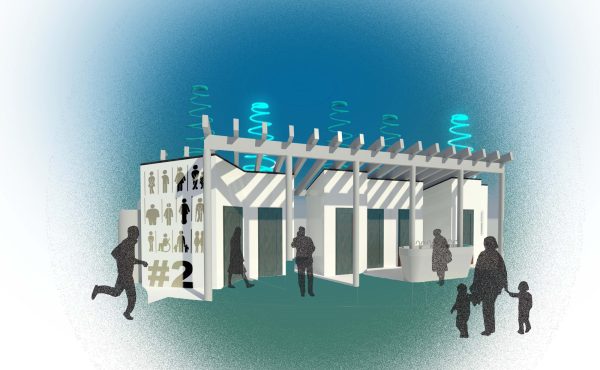
I must have blinked during the restructuring of City Council’s governance model because I was shocked when I was told there wouldn’t be deputations on the City’s capital budget at Monday’s Executive Committee meeting.
Being a little to the left of 25, I hesitate to reference the “good ‘ol days†but until November 2006 (when Council adopted its new procedural by-law), an interested person could depute to any standing committee of Toronto City Council as long as they were addressing an item on the agenda. That’s no longer the case.
According to Executive Committee clerk Patsy Morris, if an item is to be considered by more than one committee of Council, only one committee is required to entertain deputations. In the case of the capital budget, Budget Committee took care of the public input requirement back on November 13.
Some might say “So what? The public was heard and there’s no need to delay the process.â€
But that’s not how City Hall should operate. As the level of government closest to the people it serves, the City of Toronto ought to err on the side public input, especially in the case of the budget since it’s the most important decision made every year and there is opportunity to change it at both the Budget Committee and Executive Committee stages.
On a more practical level, often times, due to the size of the budget, it’s the smallest details that have the biggest micro impact that get overlooked. If Budget Committee makes a seemingly small decision, a neighbourhood association might want to point out that a particular decision, if tweaked, could have a more desirable impact.
As it stands, if that hypothetical neighbourhood association wanted to have their voice heard, they would have to setup meetings with members of Executive Committee and lobby them in hope of getting their voice heard through a councillor. That just isn’t how it ought to be. The neighbourhood association should be able to speak for themselves like they had been able to do until late 2006.
While there were many positives that came out of reforming the City’s governance model, restricting the number of opportunities to be heard on key items wasn’t one of them.
Photograph courtesy arcticlamb.




9 comments
I can understand the desire not to have a repetitious stream of deputants (sp?) hoping to grind the councillors down to their point of view on the 4th hearing just to be rid of them.
However, since deputants tend to want to change the status quo while those who decline tend to be happy with the proposal on the table, perhaps deputations could be taken on any matter where a previous committee made a change to the staff recommendation.
How about this for example:
Staff report goes to Budget –
Budget takes deputation and adopts the staff report – no deputation at Executive. Those against have been heard and those for presumably opted out.
Budget takes deputation and changes staff proposal – deputations permitted at Executive.
Hate to tell you, but no decision has turned based on a deputation at City Hall. You’re just going to have get involved the lobbyist way, by convincing Councillors before meetings. This isn’t the U.S., you know!
It comes down to what I have been saying all along. There is no democracy at city hall it is partisan party politics and the public isn’t really invited.Adam in an earlier post I tried to warn you that giving a deputation isn’t worth the time because the decisions are made behind closed doors.The deputations were allowed before to give the public the impression that there was democratic input.Just try to get the details of the spending in that budget, good luck!General figures are available.
Just imagine if you hired a contractor to renovate your house and you weren’t given any details about the costs you would incur.Would you be surprised when the final bill was way more than you expected?And then when you asked for the details of what the contractor is charging you for, and the response was that’s “for staff eyes only”.How would you feel.In toronto we have already paid the taxes and services charges levied.Now don’t expect a refund or even try to “stop payment” on that cheque.
So I suggest to wait the three years before the next election and make an informed vote instead of supporting the same old same old……
As someone who has deputed many times, moreso at the TTC than at committees of Council, I have found the rush new the new procedures rather annoying. Indeed, the Commissioners themselves discovered that they had boxed themselves in by making a distinction between “information reports” and reports requesting some action/approval. The former were non-deputable and even difficult to modify by way of new motions.
The result is that everything is now “for action” or is held down for one meeting cycle to change its status.
I wrote to the TTC about some of the inconsistencies in their new procedures, but Admiral Adam, wunderkind of precedures if nothing else, would have none of any amendments.
One of his little failings.
Steve
While Adam’s right that the Budget Advisory Committee (not a committee of Council, but only an advisory committee to Exec under the procedures) is charged with holding deputations on behalf of Executive, there are other ways to be heard by the Executive (and, in fact, all of Council):
– write a letter to the clerk, and ask it to be distributed to all members of committee and/or council — it is included in the agenda as correspondence. Her name is Merle, and she’s very sweet and helpful.
– meet privately with your councillor and/or a councillor you think would be interested in your issue and ask them to make your case at committee (I can’t promise they’ll be sweet, or helpful)
– e-mail City Council directly: (councillor_lastname@toronto.ca)
I know it’s not the same, and I know Adam’s making a different point about public access to the committee process, but there are still some opportunities remaining if they want their opinions and ideas brought forward.
Ryan Merkley
Assistant to Councillor Carroll
Ryan,
How can I guarantee it is actually heard? Correspondence in the agenda can be glossed over. Private meetings are difficult to get. Email is the ultimate disposable communication. There’s still something to be said for looking someone straight in the eye in front of others.
Dermanus,
You can’t. The process that Council approved in 2006 delegated Budget Committee to hear the deputations. One committee, one round of deputations was the procedural recommendation of Council at the end of last term.
Adam is right — it’s less consulation. I won’t pretend it isn’t. And it’s okay for him to disagree that there should be more. My point was only to offer readers some other options, and I recognize they are not equivalent to a deputation.
Ryan the options you offer are not acceptable in a democracy!It seems access to the government we elected is being removed.Miller used to promise to bring in his broom to clean things up,well we all know that the broom represented a sweeping under the rug.Adam is a very well informed individual who deserves to meet “eye to eye” with any official if he has something significant or important to say.
George, I appreciate your kind words but my concern isn’t for my own ability to have my voice heard. My concern is for people who don’t know the system particularly well and rely on the deputation process to be noticed.
I should also add that, in my experience, many people at City Hall, including Ryan, have been very kind with their time to me (among countless others) and are responsive to reasonable concerns and proposals. While every councillor has a mandate that they received when they were elected and has to respect that mandate, the vast majority are open to constructive suggestions. So though I think that deputations should be allowed at every committee, I’m not of the opinion that the public has been shutout from participating in local decision-making, as some have suggested.